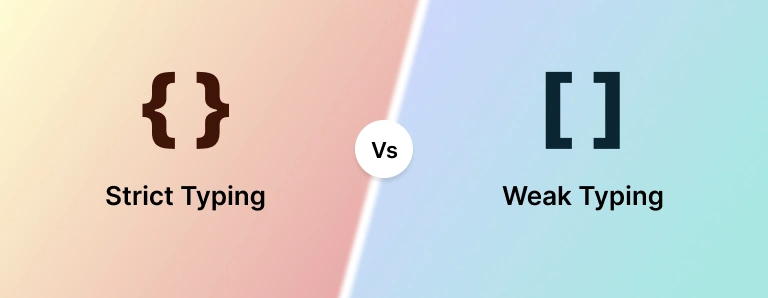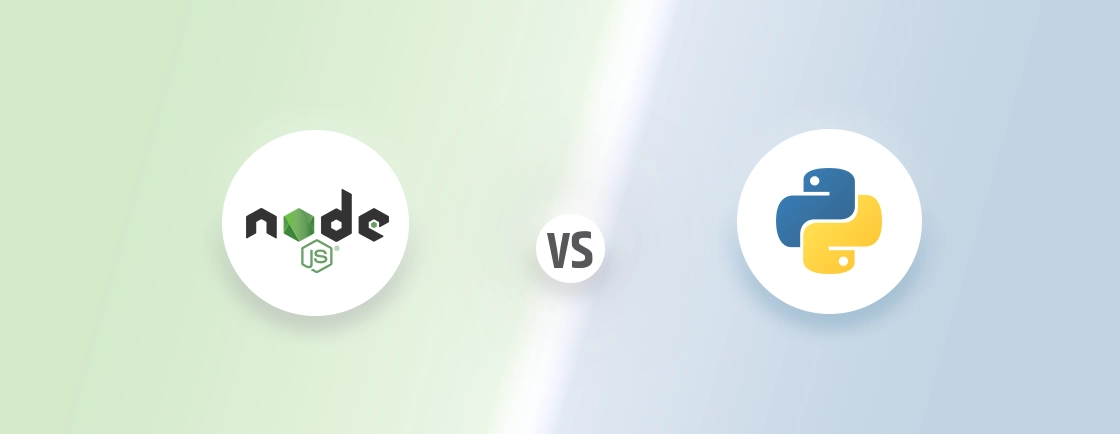Table of Contents
Can you imagine having customers lining up for your products or services but not having the team and resources to fulfill their orders? Well, some companies encounter growing technological demands constantly. But they simply can’t fulfill them with the team and resources in-house. That doesn’t mean they can grow their business. Although there are myriad options available, two distinct approaches stand out for web development services: Virtual White Label and Traditional Outsourcing.
While both these approaches have been reliable for delegating tasks to professionals, people are often confused about virtual white label remote teams vs traditional outsourcing. Each of these models has its own strengths and weaknesses. Moreover, both these models differ on several fronts, including project management, business processes, team training, work approach, and more.
So since choosing between the two models can be a little confusing, we have created this guide to explain traditional outsourcing vs white label partnership. Following this will help you acquire the best services for your website project. Without further ado, let’s begin.
What is Traditional Outsourcing?
Traditional outsourcing is a hiring model through which a company delegates particular tasks or functions of a process to external service providers. These individuals or companies are often located in different regions or countries. It involves contracting a third-party organization to handle certain aspects of the company’s operations. So the business can better focus on its core competencies while leveraging the expertise of specialized service providers.
Let’s say you are going to have too many people for dinner at your home. That means high demand and a variety of choices (in terms of food). So if you focus on cooking and serving the food, it won’t be possible to entertain the guests. That’s where traditional outsourcing comes in. You can delegate the responsibility of preparing and serving the food to an external team. This team will have experienced chefs and servers who specialize in catering for large events. So you will be free from this responsibility.
Similarly, when creating a website, you may entrust the design, development, or maintenance to an external team. This team could be a dedicated web design company (for website design) that specializes in designing the pages of a website. The main advantage of outsourcing vs. in-house is that you can better work on your core competencies while leaving the rest to the professionals.
Let’s check out a few of the other key features of traditional outsourcing:
Cost-Effectiveness
Traditional outsourcing often provides a cost-effective solution for businesses. They can benefit from the specialized skills of external teams without investing in additional resources or infrastructure.
Access to Expertise
Partnering with established outsourcing providers offers the companies a pool of global experts. These experts have domain-specific knowledge and experience unavailable within the in-house team.
Time Savings
Outsourcing technical processes can save time for companies, thanks to the external team’s specialized knowledge and experience. So the companies can accelerate project timelines and meet deadlines more effectively.
Resource Management
By outsourcing non-core tasks, companies can optimize their resource allocation. They can utilize their in-house team for strategic initiatives and primary business functions.
Streamlined Operations
External service providers are typically well-versed in industry best practices and can deliver projects with efficiency and precision, contributing to streamlined operations.
Focus on Core Competencies
Traditional outsourcing allows businesses to focus on their core technical competencies and strategic objectives. By outsourcing business processes to external experts, companies can enhance their overall efficiency and effectiveness in the market.
Overall, traditional outsourcing remains a popular approach for businesses seeking specialized skills, cost-efficiency, and streamlined processes. But there are some traditional outsourcing challenges, including communication, quality control, data security, and privacy. So make sure you choose the outsourcing agency after some careful consideration.
However, before you make a decision on traditional outsourcing vs white label partnership, let’s see what white label partnership is.
What is a White Label Agency?
A white label agency refers to a group of skilled professionals or experts working remotely and collaborating as a unified team to provide specialized services to businesses under the client’s brand or label.
Let’s try and understand this model with an analogy. Imagine a best-selling book by a famous author, captivating readers worldwide. While you’ll see the author’s name appears on the cover, the book’s contents were, in reality, written by a skilled ghostwriter. This person (or team) remains behind the scenes. They offer their writing expertise to craft a captivating storyline capturing the author’s vision.
This modern approach to teamwork combines the benefits of virtual work arrangements, white labeling, and remote collaboration. So a white label agency can deliver tailored solutions for various projects and tasks.
For example, connecting to a white label marketing company, you can get high-quality promotional and marketing services under your brand identity. That helps foster trust and loyalty with their clients and customers.
Here are a few key features of a white label remote team:
White Labeling Expertise
A white label agency specializes in providing products or services that can be rebranded and resold by other businesses under their own brand identity. They are adept at creating customizable solutions that seamlessly integrate with the client’s brand, ensuring a cohesive customer experience.
Scalability & Flexibility
White label agencies offer scalable solutions that can accommodate the varying needs of different clients. They can adjust their services to meet the demands of businesses of all sizes, enabling clients to access the resources they require without unnecessary overhead costs.
Confidentiality
White label agencies prioritize confidentiality and Non-Disclosure Agreements to protect their client’s interests. They maintain strict confidentiality regarding the services they provide, preserving the client’s ownership of the final product.
Timely Delivery
White label agencies understand the importance of meeting deadlines. They strive to deliver products or services promptly, allowing clients to launch their offerings in a timely manner.
Cost-Effectiveness
Engaging a white label agency can be cost-effective for businesses. Instead of investing in extensive research, development, and infrastructure, clients can leverage the agency’s existing resources and expertise, reducing overall expenses.
Any company can leverage the white label agency’s expertise and rebranding capabilities. They can enhance their portfolio and enter new markets. Moreover, they can deliver top-notch products or services to their customers while maintaining a strong brand presence.
Virtual White Label Remote Team vs Traditional Outsourcing
Now, although you know what white label remote team collaboration and traditional outsourcing solutions are, it may not be enough. So in this section, we’ll explore their defining work approaches, scalability, project management tools, and more.
Understanding the distinctions between these two paradigms will empower businesses to make informed decisions. So they can align their choice with their specific objectives and organizational ethos.
Let’s start with the key differentiating factors.
Project Management Tools
Virtual white label remote team emphasizes utilizing modern project management tools and digital collaboration platforms to ensure seamless project execution. These teams can leverage a wide range of software to enhance communication, task tracking, and more.
The extensive use of digital tools fosters a highly efficient and transparent work environment. It promotes seamless coordination among team members and clients.
On the other hand, traditional outsourcing also utilizes project management tools to manage internal operations efficiently. However, the degree of visibility and direct access to these tools might vary between the outsourcing provider and the client.
The provider typically manages the project using their chosen tools. So the client’s involvement in the day-to-day project management might be more limited.
Verdict: For web development and otherwise, project management in remote teams has an edge in terms of leveraging modern tools. That offers greater transparency and enables efficient real-time collaboration. But traditional outsourcing, while still employing project management tools, may focus more on provider-centric processes. It may not offer the same level of real-time collaboration and transparency as virtual white label remote teams.
Business Process
A virtual white label remote team operates as an extension of the client’s business. It aligns closely with their business processes and brand vision. These teams integrate seamlessly with the client’s existing workflows, adopting their methodologies, tools, and best practices.
The virtual collaboration allows for real-time communication and instant updates, enabling a dynamic and cohesive approach to project execution.
However, an outsourcing provider operates as a separate entity and handles tasks or projects on behalf of the client. While the provider might possess their own efficient processes, they might not integrate directly with the client’s existing business workflows.
Verdict: Clients can expect a more cohesive and customized approach to project execution with Virtual White Label Remote Teams. But traditional outsourcing doesn’t provide the same level of flexibility and customization, as they operate more independently from the client’s business processes.
Team Training
Virtual White Label Remote Teams receive customized and specialized training tailored to the client’s specific requirements and industry domain. The teams undergo thorough onboarding sessions to understand the client’s brand, business processes, and standards.
This training approach ensures that the team members are well-equipped with the knowledge and expertise related to the client’s business. That helps them seamlessly deliver high-quality services.
On the other hand, in traditional outsourcing, the training provided to the outsourcing team tends to be more generalized and standardized. The team members do receive training to perform their roles. But it may not be as specifically tailored to the client’s brand and industry compared to the virtual white label remote teams.
Verdict: Virtual White Label Remote Teams have an advantage in terms of receiving customized training that aligns precisely with the client’s expectations and industry specifics. But with traditional outsourcing, the training tends to be more generalized and less specifically tailored to the client’s brand and industry.
Work Approach
Virtual white label remote teams adopt a collaborative and client-centric work approach. They work closely with the client as an extension of their team. That fosters seamless communication and integration into the client’s business processes.
This approach allows for real-time feedback, iterative improvements, and a deep understanding of the client’s objectives. It results in more tailored and cohesive project execution.
On the contrary, in traditional outsourcing, the work approach is more provider-centric. The outsourcing provider operates as a separate entity, handling tasks or projects on behalf of the client. While they aim to deliver quality services, the level of direct involvement and collaboration with the client might be more limited.
Verdict: Virtual White Label Remote Teams offer a more client-centric and collaborative work approach. It fosters a stronger partnership and understanding of client needs.
Value Added Services
Virtual White Label Remote Teams are known for going the extra mile and providing value-added services to their clients. Beyond delivering the core contracted services, they offer additional insights, creative suggestions, and innovative solutions. It enhances the overall project outcome.
Their collaborative and client-centric work approach enables them to understand the client’s goals better. That leads to the identification of opportunities for improvement and added value.
On the contrary, traditional outsourcing providers deliver reliable and specialized services. But their primary focus is often on meeting the contracted requirements without necessarily offering extensive value-added services. The provider-client relationship might be more transactional, and additional creative input may not be a primary consideration.
Verdict: Virtual White Label Remote Teams follow a proactive and client-centered approach. That enables them to deliver core and creative solutions more effectively. But with traditional outsourcing, the primary focus is often on meeting the agreed-upon terms of the contract. So the value-added services in outsourcing won’t go beyond the specific scope.
Scalability
Virtual White Label Remote Teams offer high scalability, providing businesses with the flexibility to easily adjust the team size and resources based on project requirements. As an extension of the client’s team, they can quickly adapt to changing project needs, accommodating both expansion and downsizing efficiently.
This scalability allows businesses to handle varying workloads. They can take advantage of opportunities without being restricted by fixed team capacities.
Traditional outsourcing also provides scalability to a certain extent but might involve a more formalized process for resource allocation and team expansion. It offers the ability to access a broader talent pool. But scalability in outsourcing might require formal renegotiation of contracts and adherence to predefined processes.
Verdict: There is no traditional outsourcing vs white label partnership. Both models offer good scalability, providing businesses with flexibility in resource allocation.
Turnaround Time
The project turnaround time with virtual white label remote teams is often faster due to close integration and real-time collaboration with the client’s team. There is seamless communication and direct involvement with the client. That enables swift decision-making, immediate feedback, and quicker project progress.
The team’s familiarity with the client’s brand and processes also contributes to a more efficient and streamlined workflow. That reduces the turnaround times for deliverables even further.
Traditional outsourcing providers may have more formalized communication channels and potential time zone differences. That means delays in exchanging feedback and updates and slightly longer turnaround times.
Verdict: Virtual White Label Remote Teams may have a slight advantage in terms of faster turnaround times due to their efficient collaboration methods.
Accountability
Virtual White Label Remote Teams prioritize a high level of accountability in their work approach. As an extension of the client’s team, they take ownership of their responsibilities and are committed to delivering results that align with the client’s objectives.
The close collaboration and direct involvement with the client foster a sense of shared responsibility, making them more accountable for the project’s success.
Traditional Outsourcing providers also maintain accountability for their services, but the level of direct involvement with the client might be less pronounced. They are responsible for meeting the terms of the contract. But the sense of shared responsibility with the client’s team might not be comparable to white label remote teams.
Verdict: Both virtual white label remote teams and traditional outsourcing providers demonstrate accountability, with Virtual White Label Remote Teams showcasing a deeper sense of ownership.
Overall Verdict
Both virtual white label remote teams and traditional outsourcing have their unique strengths and advantages. White label agencies stand out in terms of collaboration, customization, value-added services, and accountability. They seamlessly integrate with the client’s processes, deliver customized training, and offer a client-centric work approach.
On the other hand, Traditional Outsourcing offers scalability, access to a broader talent pool, and established project management processes. It can be a reliable option for companies seeking well-defined services without the need for extensive customization. So you can’t summarize this with traditional outsourcing vs white label partnership.
The choice between the two models ultimately depends on the specific needs and preferences of the business. Companies that desire a more collaborative approach may opt for a white label WordPress development services or a white label web development services for a high-quality website development solution. But those prioritizing scalability and established processes might be better off with traditional outsourcing.
FAQs Related to Traditional Outsourcing Vs White Label Partnership
Can I maintain customer relationships in both models?
In traditional outsourcing, the service provider typically interacts directly with the outsourcing company’s customers. In a white label partnership, the reselling company maintains full control over customer relationships. That allows for a more seamless customer experience.
What about quality control in both models?
In traditional outsourcing, quality control lies primarily with the service provider. In a white label partnership, the reselling company can maintain stringent quality standards. It ensures the products or services meet their expectations before reaching the end customers.
Which model provides better transparency in the process?
White label partnerships tend to offer greater transparency in the process. The reselling company is actively involved in project management and can directly communicate with the white label provider. Traditional outsourcing may have a more hands-off approach, potentially leading to less visibility into the process.
Conclusion
The world is moving forward at quite a fast pace, and to keep up with it, companies have to stay updated with the demand and supply. But there is a chance they don’t have the necessary skills and resources for growth and scalability. That’s where traditional outsourcing and white label partnerships come. They help supplement your in-house teams and provide you with additional resources. So you can ensure the best products and services to the clients and customers.
But there’s often confusion about the traditional outsourcing vs white label partnership. Although the scope of scalability in outsourcing and white label is similar, they do differ on other factors like project management, business process, work approach, turnaround time, and more.
At WPWeb Infotech, we offer the best engagement models along with white label web development, WordPress development, digital marketing, and more. So make sure you contact our experts today!
Compare the best tech side by side.
Our in-depth comparisons help you see features, pros & cons, and choose the right tools confidently.




